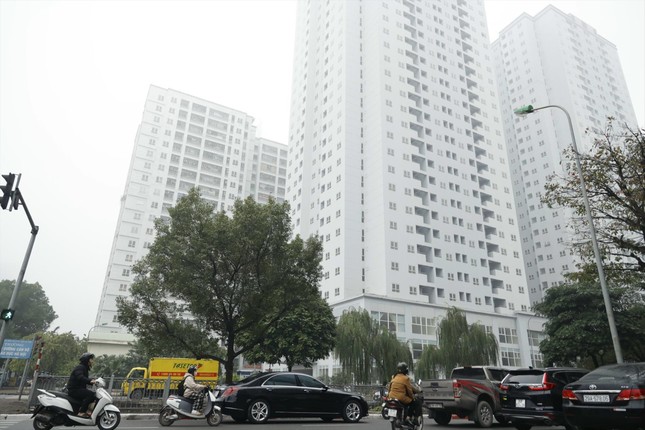Decoding the Rising Real Estate Wave

Imagine buying an affordable commercial apartment in Hanoi seven years ago, only to find out that its price has suddenly skyrocketed. This is the reality for many individuals like Minh Hanh who purchased a 70m2 apartment for 1.3 billion VND, only to see it surge to 2.7 billion VND. The average price per square meter in the area is estimated to be around 38-40 million VND. It seems that whenever a unit goes on sale in Hanh’s building, real estate agents immediately inquire about it and potential buyers quickly make deposits.
This sudden surge in prices is not limited to affordable apartments. Even mid-range and luxury properties in Hoai Duc have experienced a drastic increase, ranging from 35-40 million VND per square meter for low-cost projects to over 50 million VND per square meter for high-end developments like Vinhomes Smart City.
Some speculate that this surge in prices is driven by developers utilizing large deposits to create momentum and drive up property prices. However, this approach can lead to unhealthy market practices such as speculative bubbles, inflated prices, and price differentials.
The price surge is not exclusive to apartments; even townhouses and villas in the Ha Dong area have experienced a sudden increase. In one dormant project, the prices for townhouses and villas have risen by over 200 million VND per square meter. Surrounding projects and even existing residential properties have also seen price increases prior to the launch of new projects.
According to Dương Thùy Dung, the CEO of CBRE Vietnam, Hanoi has seen positive signs in terms of new apartment launches in the first quarter of 2024, with an 11% increase in supply compared to the same period last year. In contrast, Ho Chi Minh City has experienced a 54% decrease in apartment supply in the first quarter of 2024.
The absorption rate in the Hanoi market during the first quarter of 2024 was relatively low due to the Lunar New Year and the timing of new supply, which was concentrated towards the end of the quarter. There were 1,827 units launched in the first quarter of 2024, a 46% decrease compared to the fourth quarter of 2023, and a 10% decrease compared to the first quarter of 2023.
When asked why apartment prices in Hanoi have surged in the early months of this year, Dương Thùy Dung explained that Vietnam, in general, and Hanoi, in particular, have been facing a shortage of supply in the real estate market, especially for affordable and mid-range properties.
Looking at the past trends in the real estate market, from the hot period to the cold period, experts believe that there is a low probability of another property bubble appearing in the next three years. However, some securities firms forecast that a property bubble may re-emerge in 2025-2026 when buyers have a better understanding of the market dynamics created by “sharks” or have experienced the recent period and realized that investing in real estate can create genuine value and liquidity.
Overall, the real estate market is still recovering from its previous slump, as real estate companies are not yet strong enough to drive a substantial revival.
To stay updated on the latest news and trends in business, visit Business Today.
